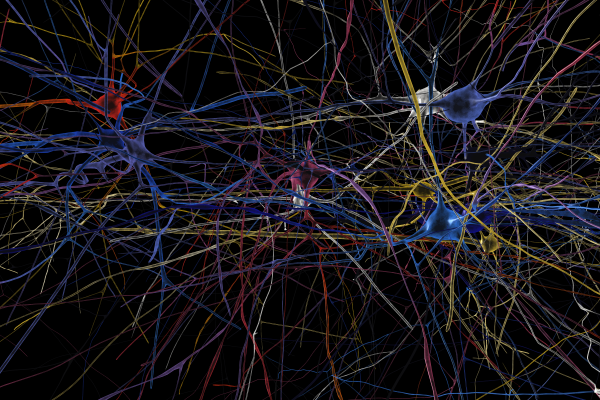The EUR 1 billion Human Brain Project (HBP), one of the EU’s flagship research projects for the next 10 years, will employ supercomputers to reconstruct a human brain and then use it to control robots and test out drug treatments.As people live longer, brain diseases like Alzheimer’s have become some of society’s most pressing problems. The hope is that the HBP will help scientists test and develop treatments because they’ll be able to see how they work on the whole brain, not just a part.Today you have scientists working on a genetic, behavioural or cognitive level, and then you have informaticians, chemists and mathematicians. They all have their own understanding of how the brain functions and is structured.‘We want to reach a unified understanding of the brain and the simulation on a supercomputer is the tool,’ says Professor Henry Markram, who is coordinating the project from the Ecole Polytechnique Federale de Lausanne, in Switzerland.Researchers on the HBP, including many of Europe’s best neuroscientists, doctors, physicists and mathematicians, will use a progressively scaled-up, multilayered simulation running on a supercomputer. In total, over 80 institutions are involved in this project.“‘The biggest success for me would be if, after 10 years, we have a new model for neuroscience where everyone works together.’ Professor Henry Markram, Ecole Polytechnique Federale de Lausanne, Switzerland.Prof. Markram’s fascination with the brain began with a school assignment in his native South Africa. He was 14, and as he sat in the library reading about depression, he was astonished to discover there might be ‘molecular explanations to mental illness’ that could be treated with drugs.In HBP, scientists will build a model of the brain that will help them study those drug treatments. ‘A meticulous virtual copy of the human brain would enable basic research on brain cells and circuits or computer-based drug trials,’ explains Prof. Markram.However, it’s not just medicine that will benefit – this computerised model of the brain will revolutionise information technology, allowing experts to design computers, robots and other devices far more powerful and intelligent than any we know today.Researchers want to build neuromorphic, or brain-like, computers which would have processors that can learn, mimicking our brains. In other words, they want to throw new light on questions we humans have been asking since the dawn of times: what does it mean to perceive, to think, to remember and to learn?Starting with the genesHowever, the HBP is ambitious. The brain contains nearly 100 billion neurons organised into networks with 100 trillion total connections, all firing split-second spikes of voltage in a broth of complex biological molecules in constant flux.Henry Markram is the Human Brain Project coordinator and leads the HBP Brain Simulation Division. © EPFLHenry Markram is the Human Brain Project coordinator and leads the HBP Brain Simulation Division. © EPFLThe HBP team will start by using supercomputers to investigate, even from the molecular level, how and which genes intervene in the process of information transferring in the neurons. The team will start working very soon on developing a detailed computer simulation.As the model becomes more accurate and behaves more like a brain, the team will couple it to a robot and watch it ‘learn’. They’ll then be able to trace the chain of events from molecules to cognition.Whisper it quietly, but the Human Brain Project really does have the potential to revolutionise technology, medicine and neuroscience.‘The biggest success for me would be if, after 10 years, we have a new model for neuroscience where everyone works together,’ remarks Prof. Markram. ‘It’s about a new foundation.’
This article was originally published in Horizon, the EU Research and Innovation magazine.
Add to favorites:
Share:
Listing Description
Video
Documents
No documents available.
Ask KETMarket to make a contact
Connect with the Listing Owner!
💬 Please log in now to askKETMarket to make a contact. Not a member yet? Sign up for free and start connecting today!
Video
Related Funding and Finance Opportunities
Unlock Exclusive Funding Opportunities!
🔑 Get instant access to tailored funding opportunities that perfectly match your needs. This powerful feature is exclusively available to our premium members—helping you save time, stay ahead of the competition, and secure the right funding faster.
Upgrade to Premium now and never miss an important opportunity again! Already a premium member? Log in here to explore your matches.
Related Innovation Offers
Discover Tailored Innovation Offers!
🚀 Gain access to technology solutions that match your specific needs and interests—carefully selected to support your innovation goals. These offers are exclusively available to our premium members, helping you identify relevant technologies faster and start the right conversations with potential partners.
Upgrade to Premium now and explore your personalized technology matches today! Already a premium member? Log in here to view your tailored offers.
Related Knowledgeable Resources
Discover More with Premium: Related Knowledge Resources
🔒 You’re missing out on expert-curated knowledge specifically matched to this topic. As a Premium member, you gain exclusive access to in-depth articles, guides, and insights that help you make smarter decisions, faster.
Whether you’re preparing a funding proposal, researching a new market, or just need reliable information—our Premium knowledge matches save you hours of research and point you directly to what matters.
Upgrade to Premium now and instantly unlock relevant knowledge tailored to your needs! Already a member? Log in here to view your personalized content.

